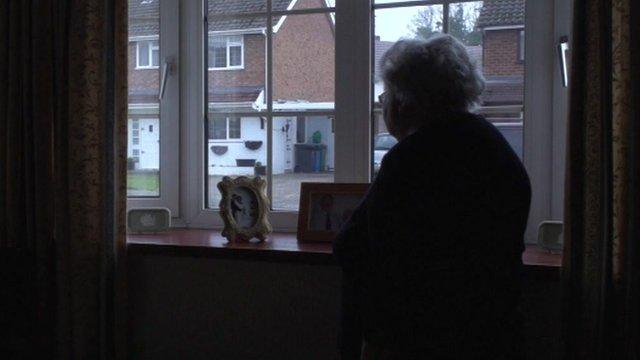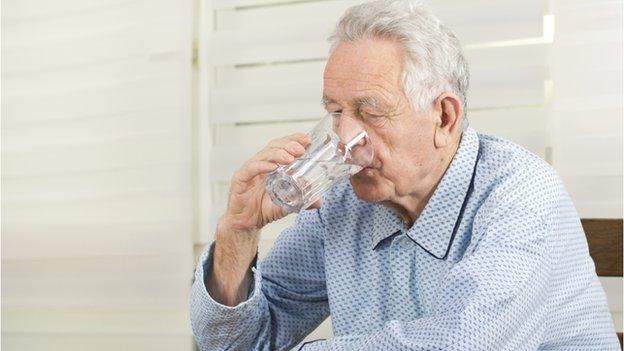One in five elderly has 'no-one to turn to', warns charity
- Published
- comments
90-year-old Maud: "Some youngsters can't be bothered with the elderly"
One out of every five elderly people in the UK who feel lonely say they have no-one to turn to, a survey indicates.
The Campaign to End Loneliness charity says older people need a "range of support" to help them fight loneliness.
Transport and technology are essential to support the elderly, says the charity, as it launches an online guidance service for local authorities.
The Local Government Association says given tightening budgets, it gives the best possible care to those in need.
'Take the lead'
As its survey on loneliness is published, the charity warns that earlier research, external has shown loneliness and isolation are as risky to health in older people as "smoking 15 cigarettes a day".
The charity is calling on local authorities to "take the lead" in tackling loneliness in older people.
Of those people answering they felt lonely in the survey, 41% said transport was a barrier to them meeting others.
One of those, Maud, 90, said she had struggled with loneliness and depression after her best friend died.
She was helped by the charity Contact the Elderly who provide volunteer drivers to take people out to monthly tea parties.
"I never married or had any children, so I found myself completely alone, and I got very depressed," Maud said.
"Sometimes I won't speak to another person all weekend, and Sundays can be particularly lonely.
"It's a miracle that my driver comes to my door and gives me a helping hand down the stairs and brings me back safely home again."
Half (51%) of the older people polled thought using the internet could help prevent loneliness in their age group.
A survey published earlier this year by Age UK suggested up to a million people over 65 felt lonely "all or most of the time".
Essential services
The campaign group has issued online guidance, external for local authorities, other charities, voluntary and public services and local businesses to advise what they say are the "essential services" needed to address loneliness in elderly people.
These services include transport to help people with shopping, support with accessing the internet or activities in their local area.
Campaign to End Loneliness director Lauren Alcock-Ferguson said the survey findings were disheartening.
"Local authorities are currently making crucial decisions about their services and need to recognise the potentially devastating impact that these changes, even in areas like transport, may have on an older person's ability to stay in touch with their friends, family and neighbours," she said.
"We need local authorities to address the many triggers of loneliness by maintaining and providing essential services that older people rely on to stay connected."
Izzi Seccombe, who chairs the Local Government Association Community Wellbeing Board, said it recognised the health benefits to the elderly accessing care in the community, but added: "As council budgets continue to come under pressure, it is a sad reality that local authorities will have to continue making difficult decisions about the services they provide.
"This can often be at the expense of other valuable services like libraries, parks and leisure centres, which can help to keep people independent, healthy and well."
- Published8 April 2015

- Published2 April 2014

- Published13 October 2014
